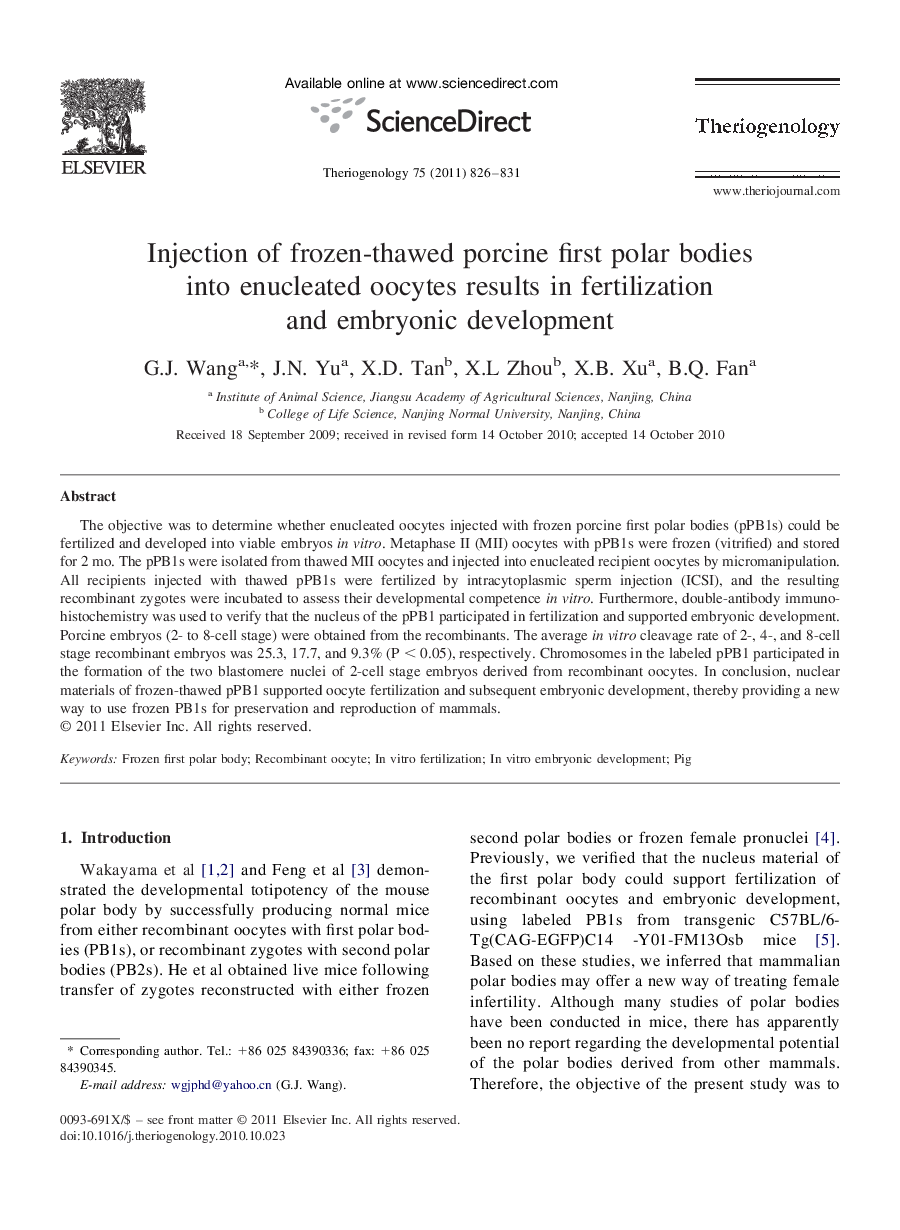| Article ID | Journal | Published Year | Pages | File Type |
|---|---|---|---|---|
| 10892975 | Theriogenology | 2011 | 6 Pages |
Abstract
The objective was to determine whether enucleated oocytes injected with frozen porcine first polar bodies (pPB1s) could be fertilized and developed into viable embryos in vitro. Metaphase II (MII) oocytes with pPB1s were frozen (vitrified) and stored for 2 mo. The pPB1s were isolated from thawed MII oocytes and injected into enucleated recipient oocytes by micromanipulation. All recipients injected with thawed pPB1s were fertilized by intracytoplasmic sperm injection (ICSI), and the resulting recombinant zygotes were incubated to assess their developmental competence in vitro. Furthermore, double-antibody immunohistochemistry was used to verify that the nucleus of the pPB1 participated in fertilization and supported embryonic development. Porcine embryos (2- to 8-cell stage) were obtained from the recombinants. The average in vitro cleavage rate of 2-, 4-, and 8-cell stage recombinant embryos was 25.3, 17.7, and 9.3% (P < 0.05), respectively. Chromosomes in the labeled pPB1 participated in the formation of the two blastomere nuclei of 2-cell stage embryos derived from recombinant oocytes. In conclusion, nuclear materials of frozen-thawed pPB1 supported oocyte fertilization and subsequent embryonic development, thereby providing a new way to use frozen PB1s for preservation and reproduction of mammals.
Keywords
Related Topics
Life Sciences
Agricultural and Biological Sciences
Animal Science and Zoology
Authors
G.J. Wang, J.N. Yu, X.D. Tan, X.L. Zhou, X.B. Xu, B.Q. Fan,
